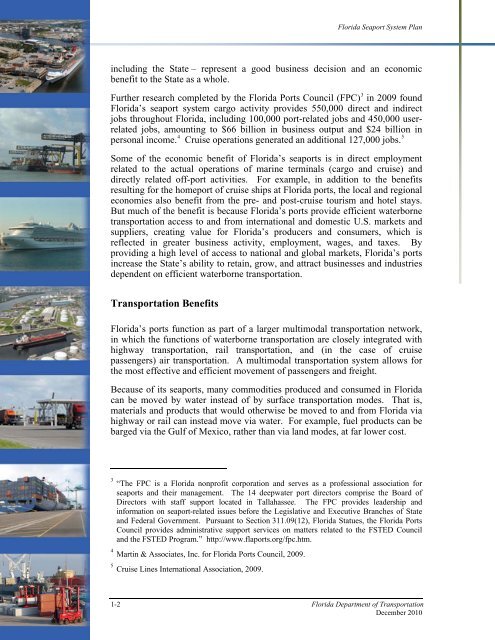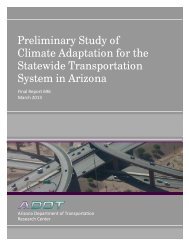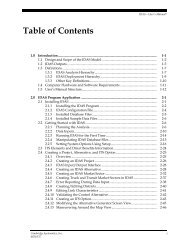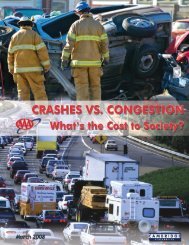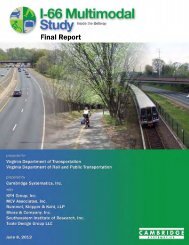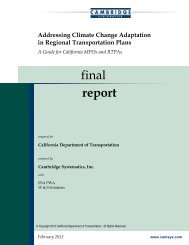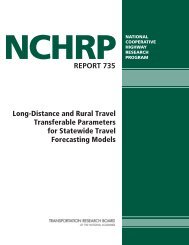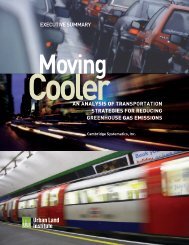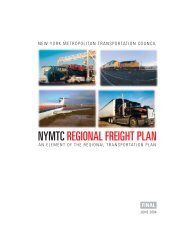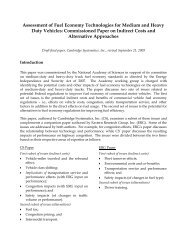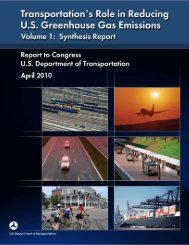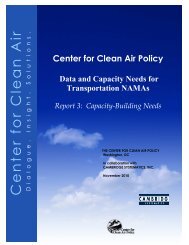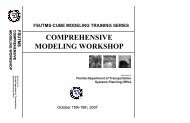Florida Seaport System Plan - SeaCIP
Florida Seaport System Plan - SeaCIP
Florida Seaport System Plan - SeaCIP
You also want an ePaper? Increase the reach of your titles
YUMPU automatically turns print PDFs into web optimized ePapers that Google loves.
<strong>Florida</strong> <strong>Seaport</strong> <strong>System</strong> <strong>Plan</strong><br />
including the State – represent a good business decision and an economic<br />
benefit to the State as a whole.<br />
Further research completed by the <strong>Florida</strong> Ports Council (FPC) 3 in 2009 found<br />
<strong>Florida</strong>’s seaport system cargo activity provides 550,000 direct and indirect<br />
jobs throughout <strong>Florida</strong>, including 100,000 port-related jobs and 450,000 userrelated<br />
jobs, amounting to $66 billion in business output and $24 billion in<br />
personal income. 4 Cruise operations generated an additional 127,000 jobs. 5<br />
Some of the economic benefit of <strong>Florida</strong>’s seaports is in direct employment<br />
related to the actual operations of marine terminals (cargo and cruise) and<br />
directly related off-port activities. For example, in addition to the benefits<br />
resulting for the homeport of cruise ships at <strong>Florida</strong> ports, the local and regional<br />
economies also benefit from the pre- and post-cruise tourism and hotel stays.<br />
But much of the benefit is because <strong>Florida</strong>’s ports provide efficient waterborne<br />
transportation access to and from international and domestic U.S. markets and<br />
suppliers, creating value for <strong>Florida</strong>’s producers and consumers, which is<br />
reflected in greater business activity, employment, wages, and taxes. By<br />
providing a high level of access to national and global markets, <strong>Florida</strong>’s ports<br />
increase the State’s ability to retain, grow, and attract businesses and industries<br />
dependent on efficient waterborne transportation.<br />
Transportation Benefits<br />
<strong>Florida</strong>’s ports function as part of a larger multimodal transportation network,<br />
in which the functions of waterborne transportation are closely integrated with<br />
highway transportation, rail transportation, and (in the case of cruise<br />
passengers) air transportation. A multimodal transportation system allows for<br />
the most effective and efficient movement of passengers and freight.<br />
Because of its seaports, many commodities produced and consumed in <strong>Florida</strong><br />
can be moved by water instead of by surface transportation modes. That is,<br />
materials and products that would otherwise be moved to and from <strong>Florida</strong> via<br />
highway or rail can instead move via water. For example, fuel products can be<br />
barged via the Gulf of Mexico, rather than via land modes, at far lower cost.<br />
3<br />
“The FPC is a <strong>Florida</strong> nonprofit corporation and serves as a professional association for<br />
seaports and their management. The 14 deepwater port directors comprise the Board of<br />
Directors with staff support located in Tallahassee. The FPC provides leadership and<br />
information on seaport-related issues before the Legislative and Executive Branches of State<br />
and Federal Government. Pursuant to Section 311.09(12), <strong>Florida</strong> Statues, the <strong>Florida</strong> Ports<br />
Council provides administrative support services on matters related to the FSTED Council<br />
and the FSTED Program.” http://www.flaports.org/fpc.htm.<br />
4<br />
Martin & Associates, Inc. for <strong>Florida</strong> Ports Council, 2009.<br />
5<br />
Cruise Lines International Association, 2009.<br />
1-2 <strong>Florida</strong> Department of Transportation<br />
December 2010


